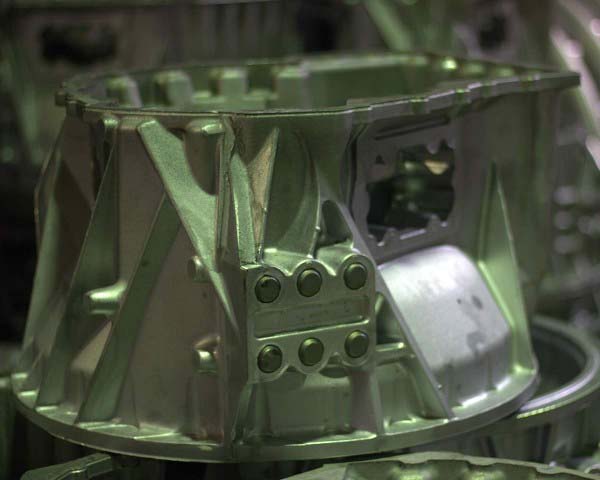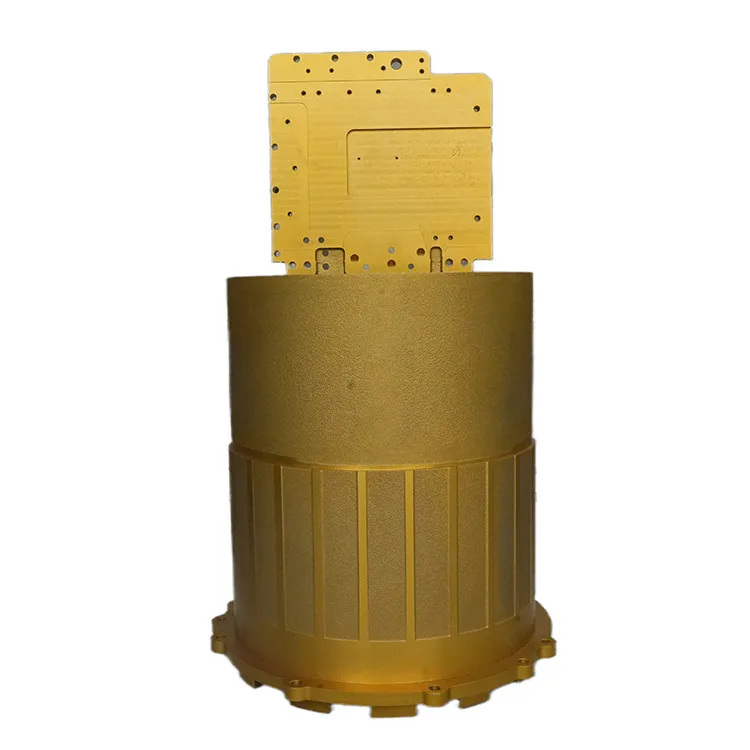Enhancing Performance in Precision aluminum casting Operations
Discover the Advantages of Aluminum Casting in Modern Manufacturing
Aluminum casting has actually become a critical procedure in modern-day manufacturing. Its light-weight yet durable nature presents considerable benefits for numerous industries. The capability to attain detailed designs and preserve tight tolerances adds to its appeal. Aluminum Casting Company. Furthermore, the cost-effectiveness and environmental advantages make it a lasting option. As producers seek ingenious options, the function of aluminum casting remains to progress. What certain applications and benefits wait for exploration in this dynamic field?
Strong yet lightweight: The Benefits of Aluminum
Although lots of products are used in production, aluminum stands out because of its amazing mix of light-weight residential properties and exceptional toughness. This distinct attribute makes aluminum an optimal option for various applications, particularly in sectors such as vehicle, aerospace, and building. Its low density enables less complicated handling and transport, contributing to reduced power consumption throughout production and setting up procedures.
Aluminum's strength-to-weight proportion is outstanding, making it possible for manufacturers to produce sturdy elements without including unnecessary mass. This particular is especially useful in fields where weight reduction can lead to enhanced fuel efficiency and general performance. Furthermore, aluminum's resistance to corrosion enhances the durability of items, further strengthening its appeal in contemporary production.
Inevitably, the lightweight yet strong nature of aluminum settings it as a recommended material, promoting innovation and efficiency throughout multiple markets. Producers significantly recognize that these advantages can bring about significant innovations in design and performance.
Precision and Intricacy in Layout
As suppliers embrace the abilities of aluminum casting, they uncover brand-new avenues for precision and complexity in style. This production procedure enables the production of detailed forms and detailed features that conventional methods typically have a hard time to accomplish. The fluidity of molten aluminum enables it to load complex molds, resulting in elements with limited resistances and fine surface finishes.
This precision is particularly useful in sectors such as aerospace and vehicle, where specific requirements are essential for performance and safety. Aluminum casting also suits ingenious styles that enhance capability without compromising architectural honesty.

Cost-Effectiveness and Efficiency
Cost-effectiveness and effectiveness are paramount factors to consider for producers exploring aluminum casting as a manufacturing method. Aluminum casting deals significant expense benefits as a result of its reduced product costs compared to other steels (Precision aluminum casting). The lightweight nature of aluminum decreases delivery and handling expenditures, and its superb thermal conductivity enables quicker cooling times during the casting process, improving general production speed
Aluminum's versatility enables producers to produce complicated forms and styles, lessening the demand for added machining or setting up. This streamlining of manufacturing not just lowers labor prices yet likewise shortens preparations, permitting business to react quickly to market demands.
Additionally, the resilience and corrosion resistance of aluminum spreadings add to longer product life-spans, minimizing replacement prices gradually. Consequently, producers can achieve a balance of high-quality result and lowered functional expenses, making aluminum casting a significantly eye-catching choice in contemporary manufacturing.
Environmental Sustainability of Aluminum Casting
Aluminum casting stands out as an eco lasting manufacturing choice, especially because of its recyclability and lowered ecological impact. The process permits the reliable use of aluminum, a material that can be recycled indefinitely without losing its homes. This particular considerably reduces the demand for virgin aluminum, therefore saving natural sources and lessening energy consumption connected with removal and processing.

Applications Across Industries: From Automotive to Aerospace
While diverse industries remain to seek ingenious materials for manufacturing, aluminum casting has shown to be a flexible service across industries such as vehicle and aerospace. In the automobile sector, aluminum spreadings contribute to lightweight vehicle layouts, boosting gas efficiency and performance. Parts like engine blocks, transmission housings, and wheels gain from aluminum's strength-to-weight ratio.
In a similar way, in aerospace, aluminum casting plays a considerable role in creating complex components that call for high longevity and low weight. Aircraft parts such as braces, landing equipment, and architectural frameworks utilize aluminum for peak performance and safety and security.
In addition, the flexibility of aluminum casting permits it to cater to other sectors, including customer electronic devices, marine, and commercial machinery. This versatility not just satisfies the details demands of various applications yet likewise supports continuous development in making processes. Because of this, aluminum casting continues to be a principal in modern-day production throughout numerous sectors.
Regularly Asked Concerns
Exactly How Does Aluminum Casting Compare to Various Other Steel Casting Processes?
Aluminum casting deals exceptional strength-to-weight ratios, faster cooling rates, and excellent corrosion resistance compared to other metal casting processes. These benefits make it perfect for various applications, enhancing efficiency and performance in manufacturing.
What Are the Typical Lead Times for Aluminum Casting Projects?
Regular preparation for aluminum casting jobs vary from two to 8 weeks, relying on elements such as intricacy, order dimension, and production capability. Effective planning can help lessen hold-ups and enhance job timelines.
Can Aluminum Casting Be Made Use Of for Intricate Layouts?
Aluminum casting can certainly fit detailed designs. Aluminum Foundry. Its fluidness allows for comprehensive patterns and forms, making it ideal for intricate parts in various markets. This convenience boosts design freedom while maintaining structural integrity and performance
What Post-Processing Options Are Offered After Aluminum Casting?
Post-processing choices for aluminum casting include machining, polishing, surface treatments, anodizing, and welding. These methods improve the surface, enhance dimensional accuracy, and increase deterioration resistance, consequently maximizing the last item's performance and aesthetic allure.
Just How Do Temperature Level Adjustments Impact Aluminum Casting High Quality?
Temperature level modifications considerably effect aluminum casting high quality by impacting fluidity, solidification rates, and possible issues. Quick air conditioning can lead to increased brittleness, while too much warmth might trigger warping or insufficient dental filling of molds during casting.
Aluminum casting has actually arised as an essential process in modern production. As suppliers embrace the capacities of aluminum casting, they find new avenues for precision and intricacy in style. Aluminum casting procedures commonly produce visit homepage less greenhouse gas exhausts compared to other metal casting approaches. While diverse markets proceed to look for innovative materials for production, aluminum casting has actually shown to be a functional solution across industries such as auto and aerospace. In the automotive industry, aluminum castings contribute find here to light-weight lorry layouts, enhancing fuel efficiency and performance.